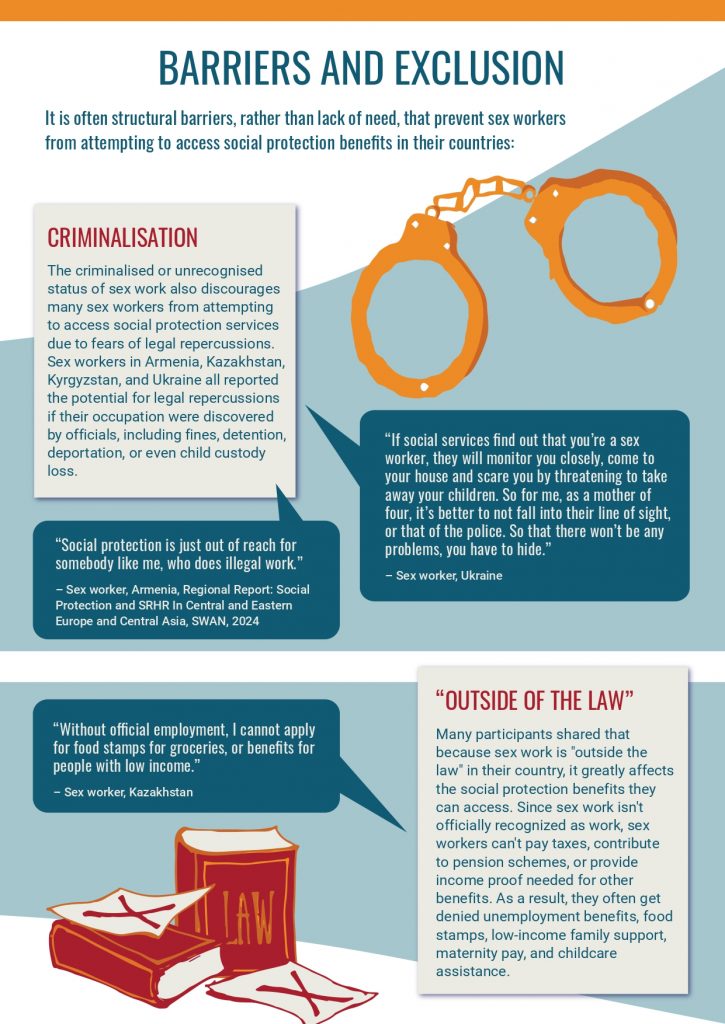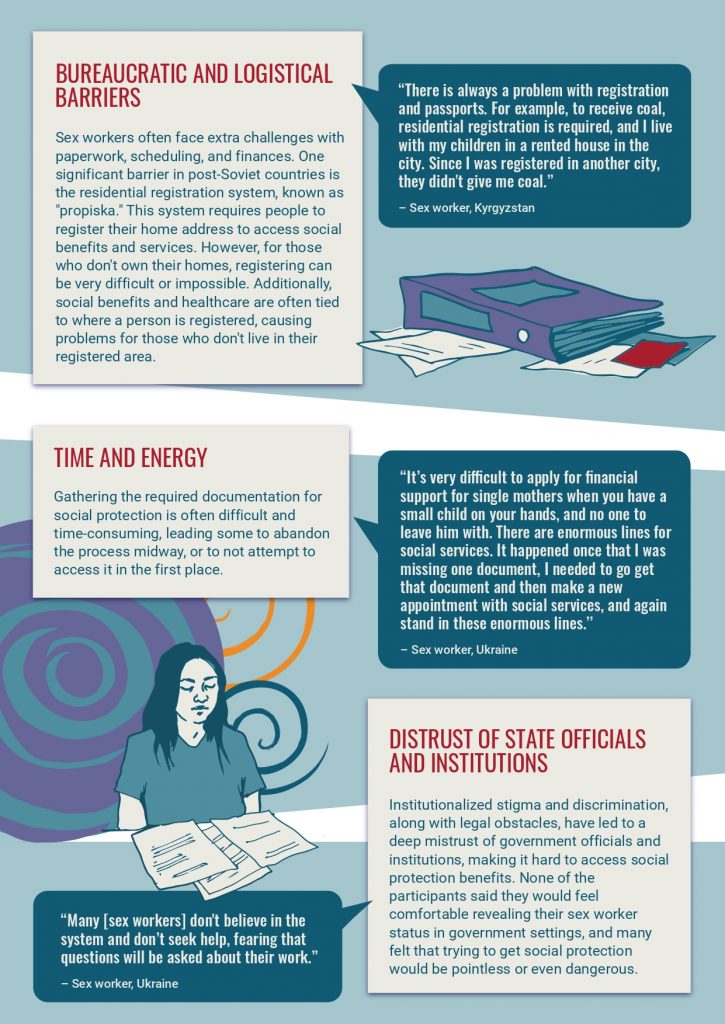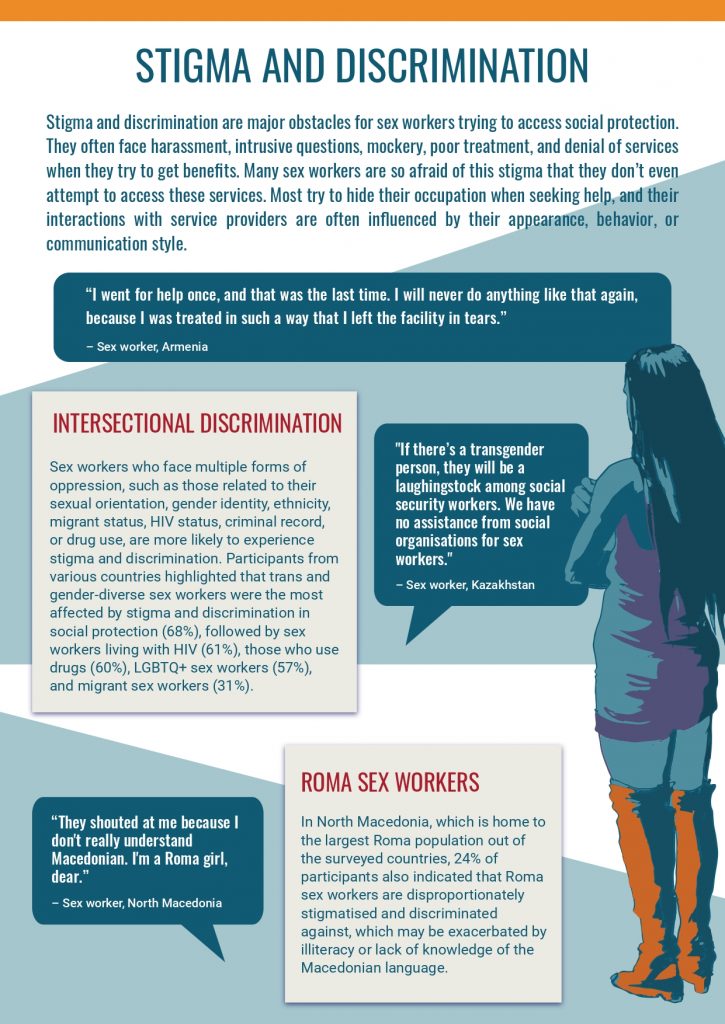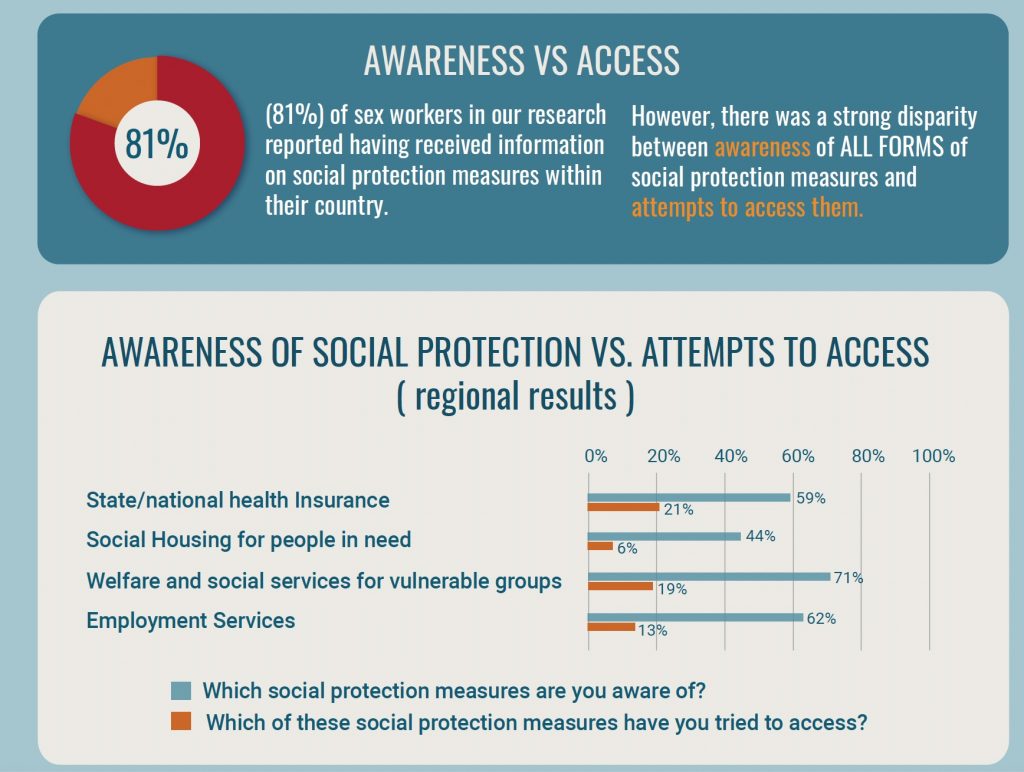Our New Infographic Illustrates Social Protection Gaps for Sex Workers in CEECA
Social protection is a set of policies and programs designed to help people stay financially secure and healthy during challenging times, such as unemployment, illness, or aging. This includes essential support like unemployment benefits, health insurance, and pensions, which are aimed at meeting basic needs and improving quality of life. Social protection is also recognized as a fundamental human right in international and regional frameworks, including those adopted by countries in Central and Eastern Europe and Central Asia. These frameworks guarantee that everyone has access to the support needed to live with dignity and stability.
Despite these commitments, critical gaps in social protection coverage persist across the region, particularly for marginalized groups like sex workers. Due to criminalization, stigma, mistrust of institutions, and bureaucratic hurdles, sex workers are often excluded from state protection schemes or unaware of their rights. The COVID-19 pandemic in particular, further exposed these inequalities. For example, in Kyrgyzstan during the initial lockdowns, many sex workers were unable to access government assistance, including food packages, because their place of residence was registered as a hotel or sauna. In Armenia, transgender sex workers faced barriers to accessing healthcare due to discrepancies between their gender markers and the legal documents required for health insurance.
These examples highlight the ongoing struggle sex workers face in accessing basic rights, a problem that intersects with broader issues such as migration, LGBTQ+ rights, poverty, homelessness, illiteracy, and sexual and reproductive health rights. The pandemic has only amplified what has long been a deeply rooted issue for sex workers worldwide.
To shed light on these challenges, SWAN, as part of the SW Consortium led by NSWP and other regional networks, has spent the past three years collecting and analyzing data on social protection and sexual and reproductive health and rights (SRHR). We are excited to announce the release of an infographic that highlights the key findings from the Regional Report: Social Protection and SRHR in Central and Eastern Europe and Central Asia. This report is based on interviews conducted with 364 sex workers in six countries: Armenia, Georgia, Kazakhstan, Kyrgyzstan, North Macedonia, and Ukraine.
“Many sex workers, particularly those without formal residential registration, struggle to qualify for benefits tied to their registered address. Institutionalized stigma and discrimination also play a major role in exclusion, as many sex workers distrust government systems or fear harassment and mistreatment when trying to access services”
Over three years, SWAN and the Sex Worker Networks Consortium found that while 81% of sex workers interviewed were informed about available services like unemployment benefits and health insurance, criminalization and lack of formal recognition of sex work kept them from accessing these protections. Fears of legal repercussions, such as fines or loss of child custody, prevent sex workers in countries like Armenia, Kazakhstan, and Ukraine from seeking support.
In addition to legal challenges, bureaucratic hurdles further block access. Many sex workers, particularly those without formal residential registration, struggle to qualify for benefits tied to their registered address. Institutionalized stigma and discrimination also play a major role in exclusion, as many sex workers distrust government systems or fear harassment and mistreatment when trying to access services. These findings emphasize the urgent need for decriminalization and reforms to ensure sex workers can access the same basic protections as other citizens.



Understanding the web of obstacles sex workers face is the first step toward dismantling the barriers that prevent them from accessing the same basic rights as other citizens. Sex workers must have a voice in shaping the social protection policies that affect their lives. We hope this report brings us closer to a future where sex workers have a seat at the table in building policies on healthcare, welfare, and social protection.
